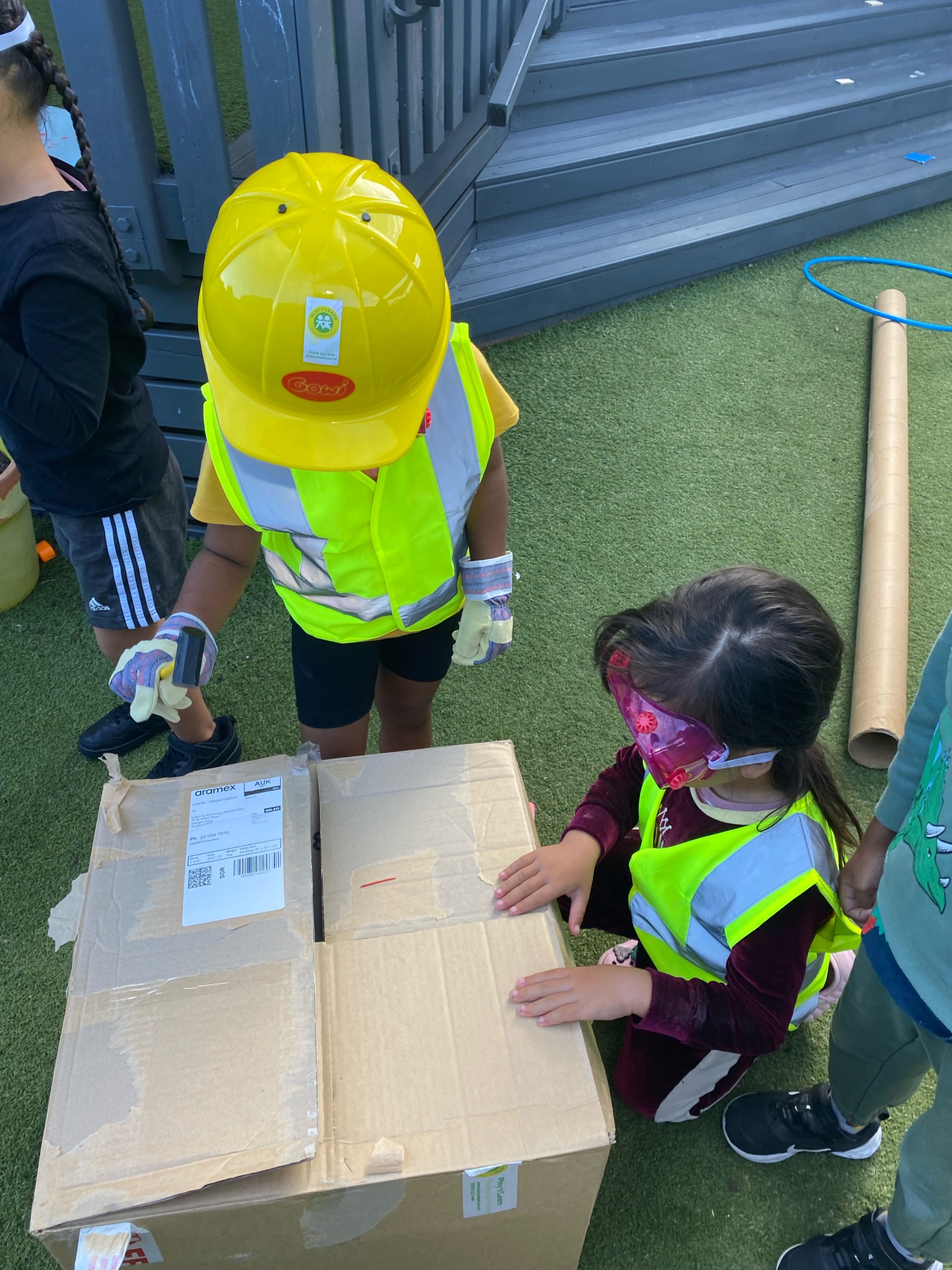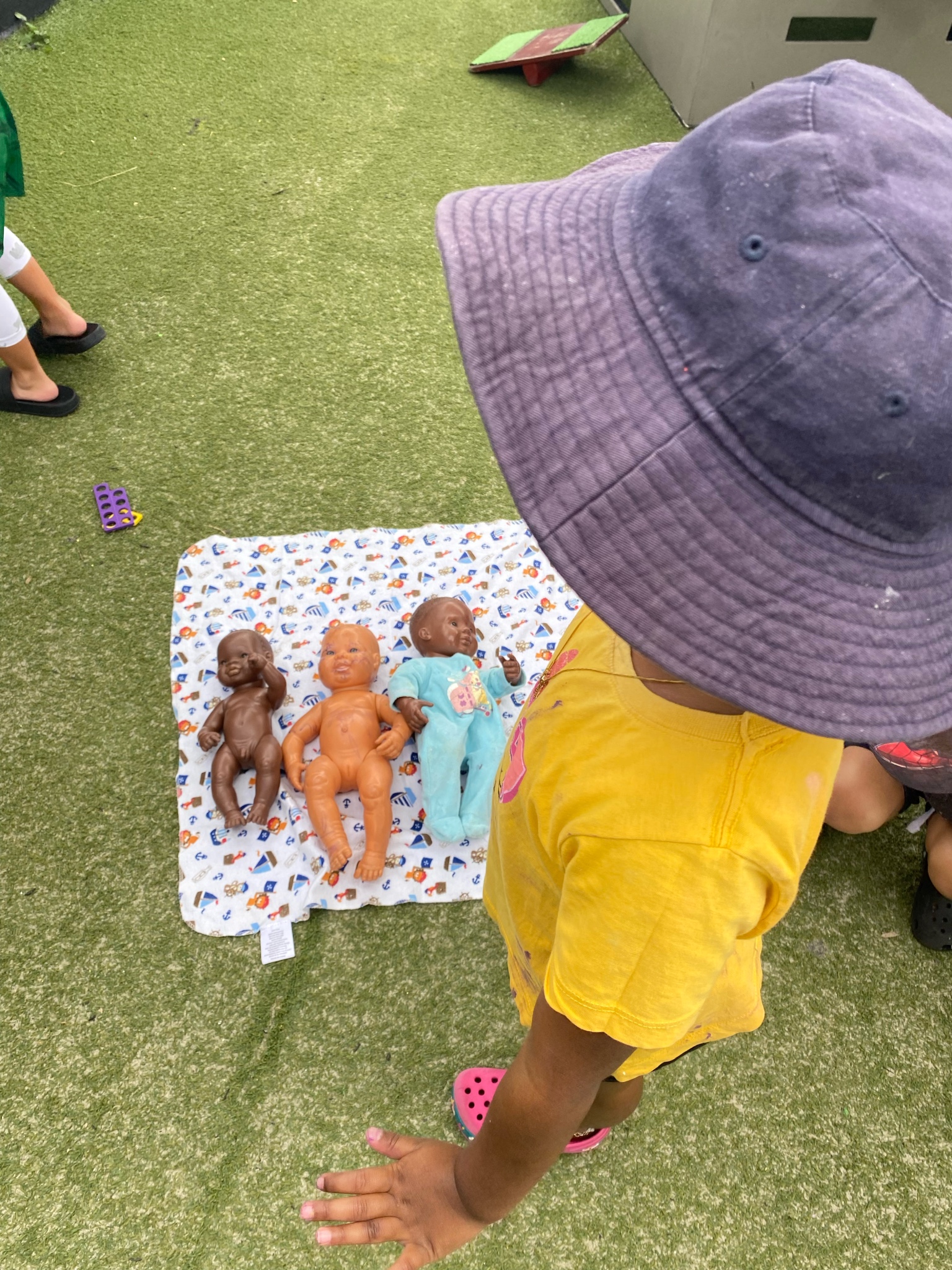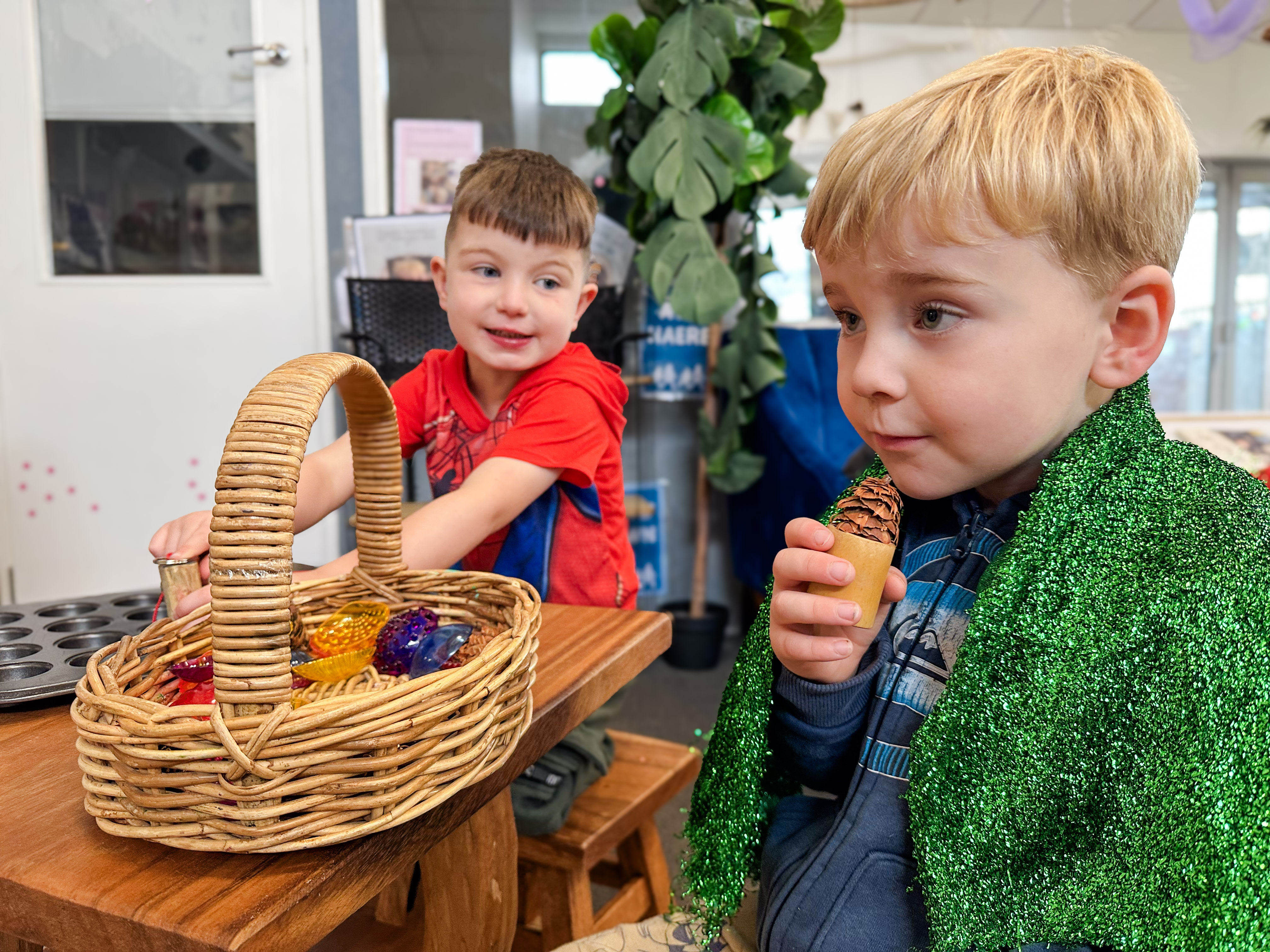Articles
Family and Dramatic Play
Young children are learning their place in the world every single day in multiple ways. The ideas that they form from observing the world around them will often show up when children are engaging in family and dramatic play.
What is family and dramatic play?
Family and dramatic play is more than playing with dolls and having tea parties, It involves children using their imaginations to act out roles and situations that they may have seen or heard about from home and life experiences as well as from peers.
This type of play is a fantastic way for children to make sense of the world and their place in it!
What are the benefits of dramatic play?
There are many skills that children learn when they are able to contribute their ideas and perspectives during family and dramatic play!
- Imagination and creativity
Family and dramatic play immerses children in make-believe worlds where they can invent characters and stories.
It also offers them an opportunity to take on and explore different roles that may be around them in their community. - Making sense of the world around them
Family and dramatic play is a perfect invitation for your child to explore the world around them as they know it.
If they are playing doctors for example- they are taking their ideas from either what they’ve observed or been told about and applying that knowledge into their play.
They may have their own ideas about how a doctor talks, what they wear and the tasks they undertake, those ideas have come from somewhere and by acting it out they are often able to make more sense of their ideas as well as offering a chance to express their feelings! - Language and communication skills
Family and dramatic play offers a fantastic way for children to further develop their language and communication skills.
During role-play, children are given opportunities to use new words and express their emotions which can help support their ever-expanding vocabulary!

Family and dramatic play does not require fancy toys or resources, a simple cardboard box can be anything that the child can imagine!

How do early learning centres support family and dramatic play?
Early childhood centres are well resourced to allow for this valuable area of play!
By creating thoughtful and responsive environments that support family and dramatic play, early learning centres are ensuring that children’s imaginations can really thrive!
Early learning teachers carefully observe children’s play whilst building strong relationships with both children and whānau, this allows them to see what the children’s interests are so they can further support their learning and development.
Links to the New Zealand school curriculum (NZC)
You may be wondering how family and dramatic play can help support your child on their pathway to school!
In the NZC, the managing self competency helps support children to set personal goals, manage projects, and develop self-discipline and resilience. Through family play, children engage in role-playing scenarios that mimic real-life situations, allowing them to practice this decision-making, problem-solving, and self-regulation. They learn to navigate social interactions, understand different perspectives, and develop empathy, all of which are crucial for managing themselves effectively.
Children learning about how the world works and how they can participate in that, also contributes to the learning area of ‘social sciences’ within the NZC making this play a valuable learning experience for all children on their pathway to school.
Loose parts in family and dramatic play
The exciting part of family and dramatic play is that you can add almost anything and your child’s imagination will do the rest, items do not need to cost money and quite often can spark just as much joy!
Loose parts are items that can be used in many different ways, for example bottle lids, boxes, wood slices, corks or even pebbles can be multiple different things in children’s play!
Pop some loose parts into your child’s play space today and see what your child can dream up!
For more information on loose parts please click here
For a printable version of this article please click here

